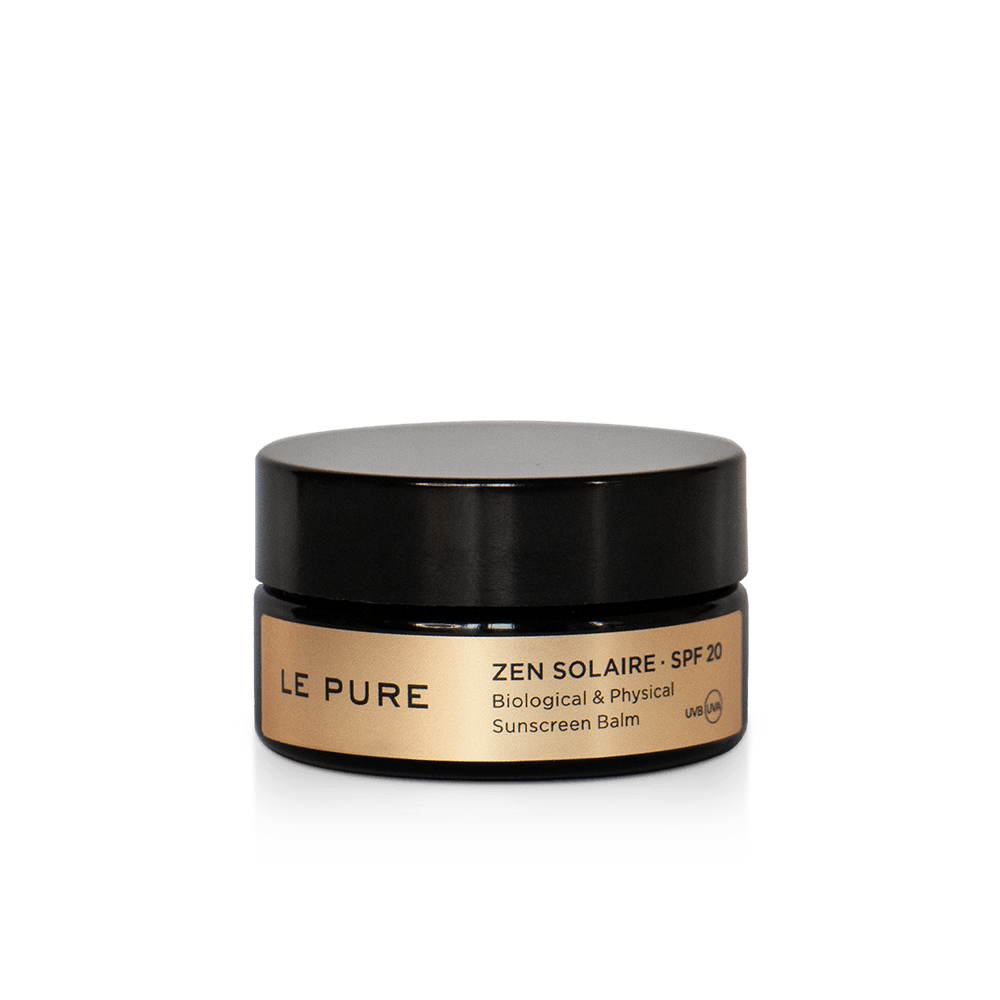Is an SPF 50 sunscreen better?
- LE PURE
- 2024-05-17
While it appears that a higher SPF value offers better sun protection for the skin, there are, in fact, significant disadvantages to SPF 50 formulations:
- Chemical SPF 50 sunscreens contain hormone-disrupting substances that are harmful to your body and the environment.
- SPF 50 mineral sunscreen leaves a white cast due to the high percentage of minerals they contain.
- If a mineral sunscreen with SPF 50 does not cause whitening, its minerals have been coated with other substances, such as chemically modified fats, which is not indicated on the product label.
- All SPF 50 sunscreens contain synthetic fats, chemically modified fats, or waxes. These substances slow down cell renewal and suffocate the skin, leading to dull, uneven, and flaky skin with enlarged pores.
- High SPF sunscreen blocks vitamin D synthesis, which has a negative effect on the correct functioning of melanocytic cells and can cause irregular pigmentation.
Given these disadvantages, is the higher protection of SPF 50 truly justifiable? Let’s examine the facts:
SPF 50 blocks 98% of UVB rays, yet the remaining 2% can still cause skin damage. Protection against UVA rays is even less effective, covering only 33% of the SPF value.
Unless the formulation contains a high percentage of photoprotective plant nutrients (80% or higher), the skin remains vulnerable to photodamage and pigmentation spots.
Zen Solaire SPF 20 blocks 95% of UVB rays, and the remaining 5% are neutralized by the antioxidants of the 88% photoprotective plants. A high concentration of potent antioxidants is the most effective protection against free radicals responsible for skin aging and pigmentation spots.
SPF 50, like any other sunscreen, wears off and requires reapplication every 2 hours. In contrast, the photoprotective plant nutrients in Zen Solaire provide extended, superior protection against UVA rays.
SPF 50 can be useful for very fair-skinned people in certain situations, e.g. for the first few days when the skin is not at all used to the sun or in extreme situations such as skiing or water sports. Otherwise, biological sun protection with SPF 20 is sufficient. More important than the sun protection factor is to apply the product well and repeat the application every 1-2 hours.
Why do dermatologists continue to endorse sunscreens without photoprotective plants?
The explanation is straightforward. While they are medical experts, dermatologists are not chemists. Their knowledge of ingredients is often limited, forcing them to depend on the studies and promotional materials of large skincare corporations. Furthermore, many have neither heard of nor experienced a biological sunscreen like Zen Solaire.
If you’re questioning whether SPF 30 is a better option, the answer is no. SPF 30 sunscreens filter out 97% of UVB rays, but share the same flaws as SPF 50 formulations.
Zen Solaire provides your skin with the very best and healthiest sun protection. Hundreds of LE PURE clients have seen significant improvements in their skin after using the world’s first truly biological sunscreen.




